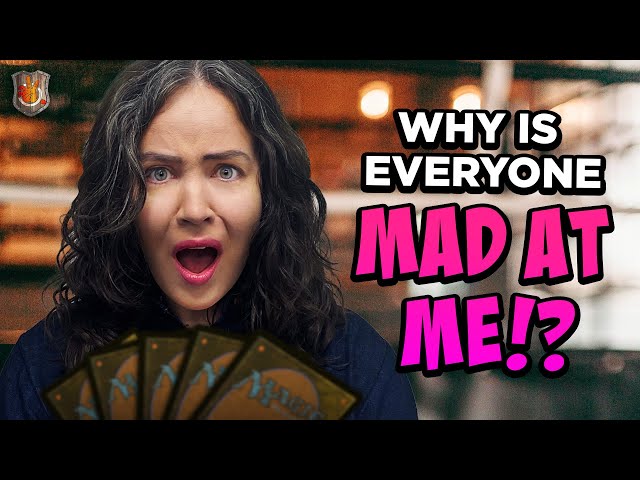I recently began playing MTG Arena regularly, and it’s rekindled a love for the trading card game I thought I’d lost years ago. A free-to-play, always accessible version of Magic: The Gathering appeals in many ways, but there’s one major reason it brought me back from the brink. Truth is, I love playing Magic – but I don’t want to talk to other MTG players.
Sorry, Magic players. It’s not you, it’s me.
No, really, it is me. More specifically, it’s being autistic that’s led me to these tacky breakup lines. Everybody on the autistic spectrum is different, but something about my particular cognitive cocktail makes in-person Magic incredibly stressful.
Autism is a complex disability that presents itself in many ways, but social impairment is one of its most noticeable traits. The CDC’s current diagnostic criteria for autism includes “deficits in developing, maintaining, and understanding relationships”. Examples include “difficulties adjusting behavior to suit various social contexts”.
Magic: The Gathering has its own unique social context. As well as a huge tome of official rules, there’s an invisible web of social etiquette behind every interaction. This goes beyond being a humble winner and a gracious loser. Every table has an unspoken contract detailing which decks, cards, actions, and behaviors are taboo. The Command Zone recently shared a long video on the subject, for example:

When you learn how to play Magic: The Gathering, no one teaches you these extra, hidden rules. And because you’re in a competitive environment, the consequences feel more severe when you put a foot wrong. You might win the game but upset a stranger – without even knowing why.
If this sounds like a lot of pressure, that’s because it is. Neurotypical people are better equipped to notice social cues, and they’re more adaptable to fluid social environments. Many autistic people have to wade through the confusion, mimicking the behaviors they see others display as best they can.
This is something the neurodiverse community calls ‘masking’ – the act of pretending to be a neurotypical person. Get good at masking, and most people won’t notice if you’re distressed by a lack of social cues.
Masking is tiring, an extra plate to spin. And when you’re playing Magic – literally the world’s most complicated game – your mental resources are already fairly taxed.
So, the mask slips. You get an in-game rule wrong, or you break a social rule instead. Maybe your opponent says something, or maybe they don’t. Either way, you’re panicked and embarrassed, acutely aware you’ve lost your place in a programmed interaction. And you’re so, so tired. Which leads to more mistakes, more worry, and more exhaustion. Eventually, something has to stop the cycle.
The National Autistic Society describes autistic meltdowns as “when someone becomes completely overwhelmed by their current situation and temporarily loses control of their behavior”. “This loss of control can be expressed verbally (shouting, screaming, crying), physically (kicking, lashing out, biting), or in both ways.”
I’ve had a lot of meltdowns playing Magic: The Gathering. It’s also been over five years since I played regularly. Those two facts are intimately linked.
By the time I stepped away from the game, MTG Arena had just come on the scene. MTGO existed pre-2018, but it had a paywall. And I wasn’t overly familiar with the unofficial ways to play online at the time. So, until recently, I missed the boat for digital Magic.
That’s all changed now. On MTG Arena, my social interactions are limited to the ‘Hello!’ and ‘Good Game’ buttons. At worst, my opponent will send a passive-aggressive ‘Oops’ message. There’s no eye contact and no space for chat.
I can join an MTG draft, but I can take the games at my own pace. Arena lets me take breaks whenever I become stressed (or dare I admit, salty). It’s isolated, but it’s also peaceful.
If I want to socialize, I’ll play D&D. But it turns out I like my Magic: The Gathering anxiety – and people – free.
Speaking of free, here’s everything you need to know about MTG Arena codes right now. Our resident TCG specialist Matt Bassil can also tell you all about the best MTG Arena decks, as well as what’s coming up on the MTG release schedule.
Source: Wargamer




